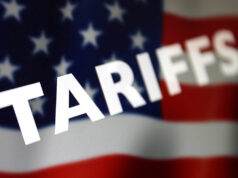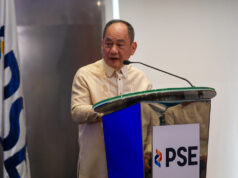Moratorium on coal-fired power seen improving PHL’s energy security
THE Department of Energy’s (DoE) recent ban on new coal power plants will improve energy security by accelerating the development of other types of generating plants, affording the grid a measure of sourcing flexibility without major disruption, according to an academic from the University of the Philippines.
“Shifting to more flexible power plants (powered by) natural gas will allow us to put up more intermittent renewable energy sources like solar and wind without adversely impacting grid stability,” Joey D. Ocon, who chairs the University of the Philippines-Diliman’s Department of Chemical Engineering, told BusinessWorld in an e-mail interview Saturday.
Intermittent sources include solar and wind, whose output is not available at night or when there is no wind, respectively.
Mr. Ocon, a professor of energy engineering, said there is a cap on the number of renewable sources which can be connected to the grid, and the ban on new coal-fired plants will help renewables gain access.
Asked about the recent coal moratorium issued by Energy Secretary Alfonso G. Cusi, Mr. Ocon said that it is a big step in reducing the country’s reliance on coal power.
He said that while the order came “a bit late”, it will accelerate the country’s shift to cleaner energy.
Based on 2015 data from the DoE, coal accounted for 44.5% of the power generation mix, while natural gas comprised 22.9%. Meanwhile, renewables accounted for a combined 25.4% with solar providing 0.2% and wind 0.9%.
Aside from the coal moratorium, Mr. Cusi also announced on Wednesday that the agency is opening its third Open and Competitive Selection Process to foreign companies interested in investing in major geothermal projects.
Late Friday, the DoE said exclusive rights to developing geothermal resources will be granted through open and competitive bidding.
“In this process, all proponents, whether foreign or Filipino corporations, will have to compete. The one with the best offer will get the RE Contract (or in the nature of a Financial or Technical Assistance Agreement should the foreign proponent win),” the DoE said in a statement delivered via Viber.
Under the Renewable Energy Act of 2008, geothermal resources are classified as mineral resources.
Letting foreign companies invest 100% in large-scale geothermal projects will open the door to more funding, Energy Undersecretary Felix William B. Fuentebella said at a webinar Friday.
When asked if the department is looking at changing the local and foreign ownership structure for other large renewables projects, Mr. Fuentebella said it is “exploring all options allowed by the country’s laws.”
Filipino solar developers have taken the position that the DoE adopt a policy that removes the 40% foreign ownership cap on solar energy projects.
San Carlos Biopower, Inc. President Arthur N. Aguilar said in a Thursday text message to BusinessWorld that he supported the removal of the foreign ownership cap “not just for solar, but for all renewable projects to spur more investment.” — Angelica Y. Yang



